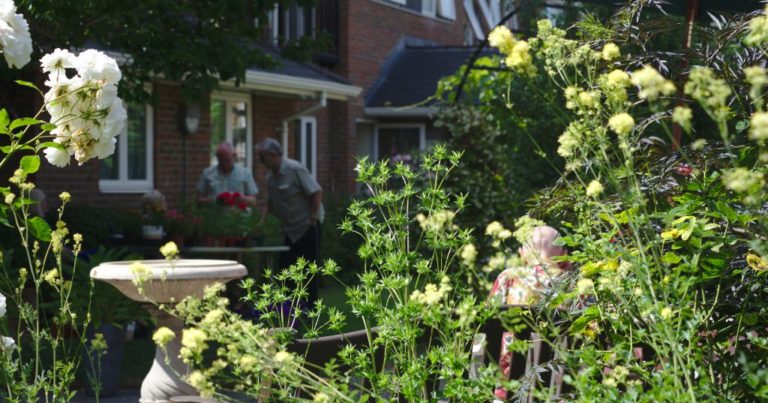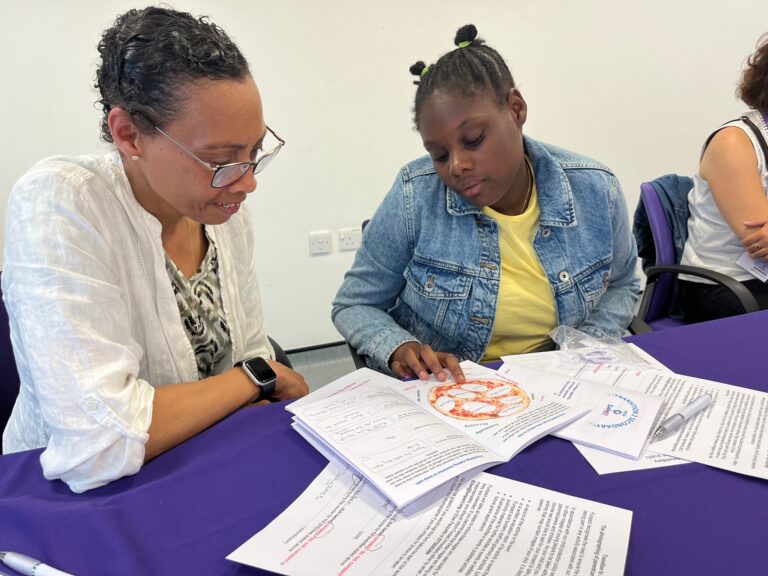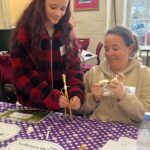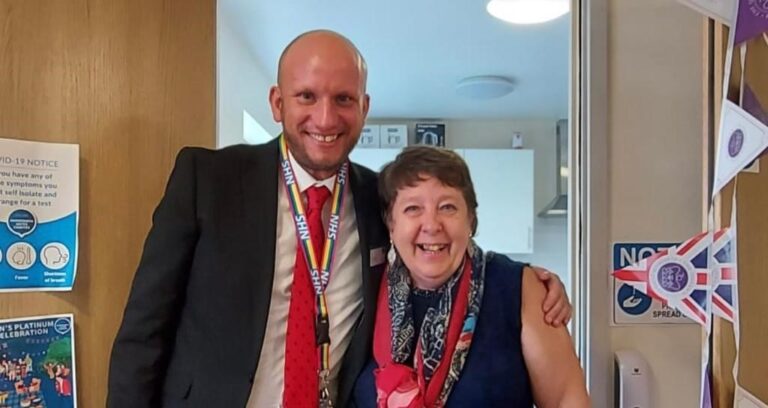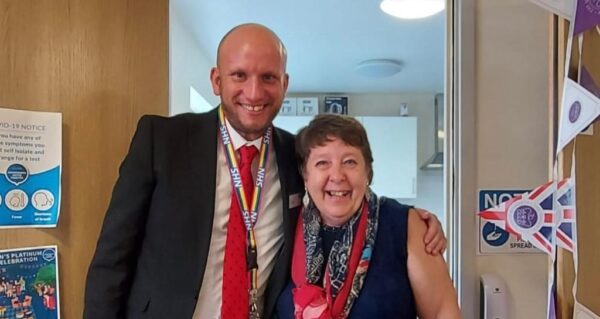A home to be proud of
One of our Sycamore House residents, Kitty, reflects on what truly makes a home, and how she’s finding her way through lockdown.
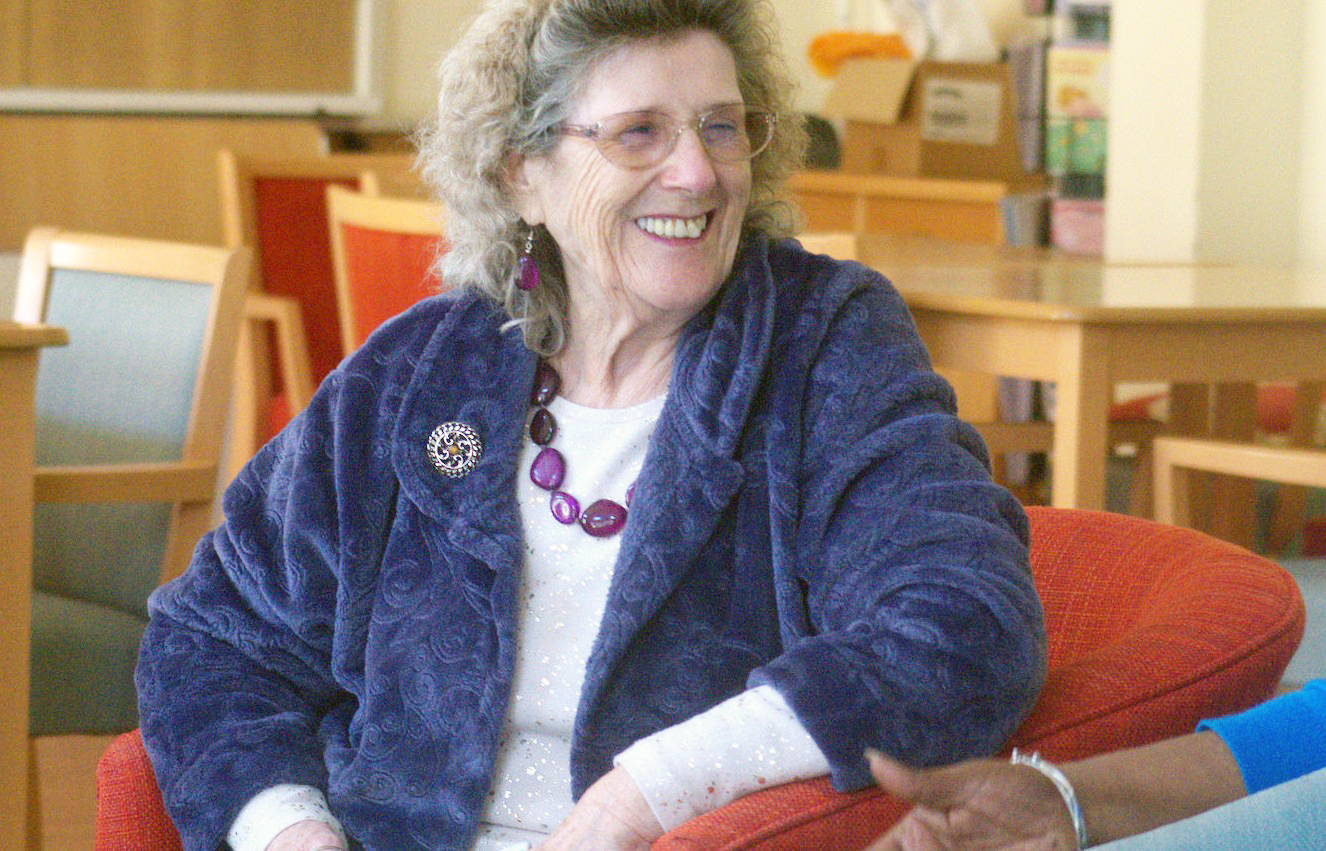
“I was born in Limerick, Ireland, but my husband and I came to London in the 1950s to try and get a start in this country.
We didn’t have a great way about things to begin with – we lived in a few different places, but it was hard to save for somewhere decent. We started off the two of us in a little bedsit in Chiswick; when we had two children, one of our first family homes was the matter of one bedroom and a kitchen in a shared house. Another place had a bath in the kitchen, which doubled as something to sit on at meals. They were tough times, but you have to make the best of everything, don’t you?
I often think back to 1972, when we were offered a council property: a flat in Trellick Tower on Golborne Road. It was brand new – with 14 cupboards in the kitchen! But it was the height that got me. We were on the 21st floor. People told me that there was a picture postcard view out of the windows, but I just could not look down. I should have gone with my instinct. We were four years in that flat, and I hated every minute. It became known as the ‘Tower of Terror’. A lot of bad things happened there. I just kept my head down with children, but we felt really cooped up.
One winter someone flooded the lifts with thousands of gallons of water from the fire hydrant. We were all without power, heat or electricity between Christmas and new year. Everyone was going up and down stairs in the dark, falling, getting ill. And the postman couldn’t come up to deliver.
Once there was a fire on the 15th floor, right below us. We were told to stay in our flats, but of course there was no ladder that would have reached us in the top levels. My husband was working that evening, and I had the four children by then, with my son a couple of months old. We were just watching the blaze. I went to the neighbour so we could be together; I was so frightened. No one died in the end, but the 15th floor was completely gutted.
After that I went to social services to see if we could move somewhere safer. We got offered a beautiful house on St Elmo Road. There was a big garden, a double garage – and four bedrooms! I couldn’t believe it. It was the happiest time of my life; it was a lucky house.
37 years, I lived there. But my husband died in 2010, and my children were making their own way in life. I stayed two more years in the house, but I didn’t feel safe rattling around on my own. It broke my heart to leave it – I had put everything into my home. But I knew that people with a young family would benefit from it. I think they’ve kept some of it the same – my little lamp is still outside the front door.
Moving to Sycamore House
At that time I was thinking along the lines of sheltered housing as I was coming to that age where I knew I’d benefit from a little care. I looked around such a lot of places, but nothing would do. I was giving up so much, so I had to feel really sure.
In 2012 I came here to Sycamore House. That feeling when you come in – you felt it was going to be a place you could feel proud to live in. I liked the care that came along with your flat, that someone came to check on you in the morning, and a cleaner tended to the place. Everyone was very kindly and the gardens were lovely. My daughter described the communal lounge as something you’d see on a cruise ship!
I do like the social side of things you get here, in normal times – the trips out together. We used to have live music and celebrate birthdays. It can be overwhelming to begin with when you move into sheltered housing, with so many people to get to know. I try and have nice conversations and learn what makes people tick – eventually I find my way.
Life in the pandemic
Lockdown in the summer wasn’t too bad – at least we could go into the garden and see people when the weather was fine. Bless them, they even purchased an outdoor heater for us. It was a walk in the park compared to the lockdown this winter. But staff have done well by us – they are doing their very best. The scheme managers are always there, and always have a happy word to say to us.
It has been a trial, not seeing family. The only time was when I had my 80th birthday and my daughter had her 60th. They came with some balloons and sandwiches and we celebrated on the pavement.
There has been hardship for everybody. A down-side of living so closely with other people is that you have to get your head around losing them when they pass on. I lost the man who lived next door to me, and I lost another friend very recently. We would ring each other, and we were there for each other. It put me down a bit. I really take it to heart when a person goes, I’m afraid. I can’t see how I will get used to it.
But I go downstairs, look around me, and it does me good. Prayer does help me immensely. If you have a religion, it doesn’t matter which, it’s something to turn to. I try to be there for people, and stop and listen – that’s the important thing, listening.
What I’m looking forward to most of all is meeting one or two friends for a pub lunch. I’ve been on my own cooking, cooking, cooking – all the time. What I wouldn’t give to have a meal and then just push the plate away. And go to the shop, go to Marks, have a look around.
But I’ve had both of my vaccinations now, so things are starting to change. I think spring is bringing a new hope for us.”
Find out more
- Over 60, on a low income and in need of a safe and affordable home?
Find out about our sheltered housing in Hammersmith with beautiful award-winning gardens. - Read Kitty’s poem celebrating Valentine’s Day

